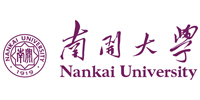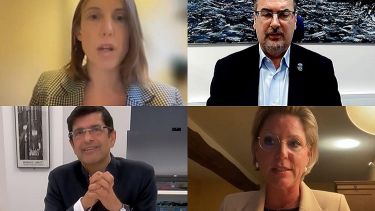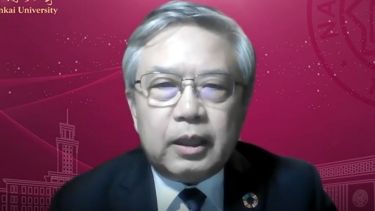
As global networks help ensure scientific knowledge and expertise is universally accessible, funding and other challenges need to be overcome to tackle the world’s biggest problems
International scientific networks built on trust and inclusive collaboration can create meaningful impact, but scientists must effectively engage with policymakers to spark real change.
At a session during the THE Leadership and Management Summit, held in partnership with Nankai University, a panel discussed how to strengthen the resilience of global scientific networks.
Chair Elizabeth Shepherd, managing director of consultancy services at Times Higher Education, asked if it had become harder for universities to justify the kind of investment needed to grow international networks.
Jan Palmowski, secretary general of the Guild of European Research-Intensive Universities, said funding and time were two challenges facing networks. “Universities are facing very acute real-time cuts in a sense, given the rate of inflation in many parts of Europe,” he said.
The Covid-19 pandemic, said Palmowski, had shown the importance of “open science”. “As policymakers in the research and innovation space talk to each other beyond the national level, the distance to the petitioners, the doers, increases. I think this is really when networks come in because they can feed back the kind of input in terms of what’s required,” he said.
“The second driver really is just the internationalisation of the higher education, jobs market and student market. Clearly, we need to talk to each other in terms of doctoral training and so forth to make sure that we are aligned and to facilitate these kinds of movements.
“The third area is that it’s really important to create structured places of trust so that as we need to collaborate more, we also create spaces that are structured in different ways for collaboration.”
Kun Qu, director of the Office of International Cooperation at the University of Science and Technology of China, agreed scientists needed to “trust each other”.
“I think there are some not very good examples of governments focusing more on competition than collaboration. However, we have to have a grand view as a scientist. As human beings we are facing great challenges on things like climate change, sustainable energy and carbon neutralisation. We will have to work together,” he said.
Qu said his own university had seen a decline in the number of students continuing their studies abroad. In 2019, 32 per cent of undergraduate students at the university successfully applied for PhD programmes outside China. By 2020 it had fallen to 18 per cent and in 2021 it was 12 per cent.
“Our students are less intent on getting a degree abroad. In the university we organise quite a few events to invite our colleagues from other institutions to come and advertise their school to attract our students,” said Qu. “I think it is critical for every student to have a global view. They get personal experience not only of other cultures and countries, but they also know what the problems are globally and that we should really work together.”
A further challenge for global scientific networks is ensuring equity. Palmowski said the Guild of European Research-Intensive Universities has very strict entrance criteria, but since its foundation that criteria have been adjusted – not lowered – for universities from countries that have not enjoyed sustained academic freedom.
“I think it’s really important that you apply the membership criteria with a sense of measure and that once a member is admitted, everybody’s at the same table so we don’t create second-class memberships,” Palmowski said. “In the higher education sector, we become weaker if we only care about ourselves.”
Shepherd asked how important international scientific networks are and will be in responding to the world’s big challenges, including climate change, food security and potentially the next pandemic.
“I always believe scientists can solve a lot of problems,” said Qu. “Scientists need to speak out. They need to tell the government or work together with these institutions or work together with funding agencies or the private sector to communicate. Scientists need to tell them what is a better way to solve these challenges.”
Palmowski agreed that the challenge was how networks could “translate the scientific consensus to the level of policymakers”.
“We need to have some courage as scientists to sometimes speak the truth to the government, or what we perceive to be the truth, that governments do not wish to hear. Because I think that we offer an incredibly important counter narrative to governments that tend to now retrench into their own walls, their national boundaries. And that’s not to say that government is always wrong, or that we are always right, but I do think it needs a much stronger dialogue on both sides,” he said.
“And the challenge for us is we need to persuade policymakers that they should engage in that dialogue, even though we may have things to say that they don’t want to hear. And that this will actually make their policymaking better, rather than worse.”
The panel:
- Jan Palmowski, secretary general, the Guild of European Research-Intensive Universities
- Elizabeth Shepherd, managing director of consultancy services, Times Higher Education (chair)
- Kun Qu, director, Office of International Cooperation at the University of Science and Technology of China








